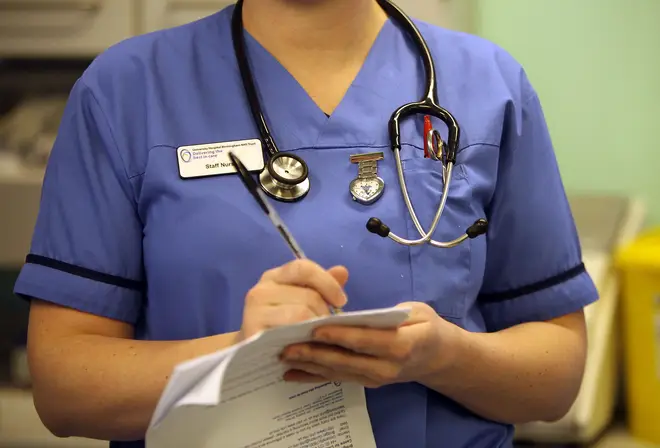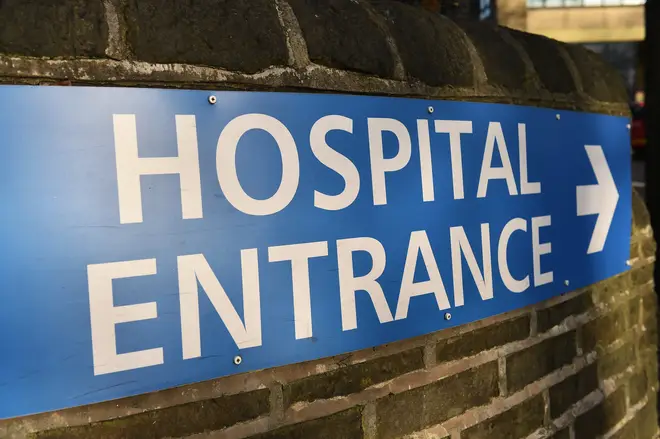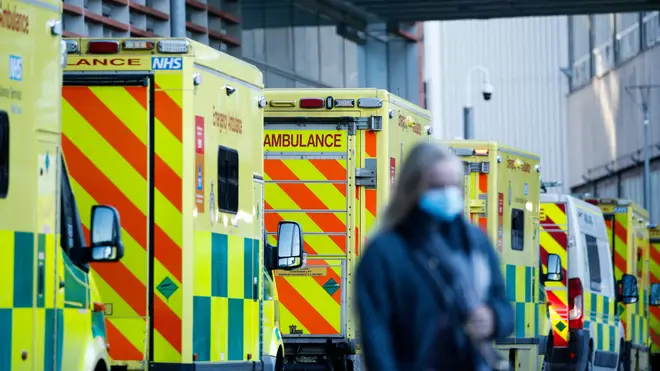
Nick Abbot 10pm - 1am
13 May 2021, 08:27 | Updated: 13 May 2021, 15:38

The number of people in England waiting to start hospital treatment has risen to a record high.
A total of 4.95 million people were waiting to start NHS hospital treatment at the end of March - the highest number since records began in August 2007.
The data also showed that nearly half a million people had to wait more than a year for treatment - over a hundred times the figure in March 2020.
It comes as health leaders have called for a review of social distancing rules across the NHS to help tackle the waiting list backlog.
In a letter to Health Secretary Matt Hancock, health leaders asked for increased investment so the NHS can grasp a "summer of opportunity" and ramp up their ability to see as many patients as possible in the next few months.

NHS England has announced funding of £160 million to trial a number of initiatives to clear the backlog, including virtual wards, 3D scanners and at-home antibiotic kits.
The plans will be trialled in 12 areas including North Central London, Hampshire & Isle of Wight and North East & Cumbria, with the funding split between them, as well as five specialist children’s hospitals including Great Ormond Street.
Read more: Covid rates at lowest in England since August with vaccines stopping deaths
Read more: Boris Johnson confirms inquiry into Covid-19 response will begin in spring 2022
Amanda Pritchard, NHS chief operating officer, said: "With Covid cases in hospitals now significantly reducing thanks to the extraordinary success of the NHS vaccination programme, our focus is now on rapidly recovering routine services.
"Early figures show local teams are already well ahead of schedule, but we want to go further, faster, which is why we are investing £160 million to find new ways to tackle waiting lists.

"The additional support announced today will help us create a blueprint for continuing that progress over summer and beyond, in a way that doesn't heap extra pressure on staff, so that as many people as possible benefit from the world-class care the NHS provides."
Rachel Power, chief executive of the Patients Association, welcomed the announcement, saying that the waiting times have caused “worry” among patients.
Read more: UK's vaccine success 'could be reversed if jabs are not shared across the globe'
Read more: British public supports sharing of Covid-19 vaccines - poll
She said: "The importance of treatment being timely, to ensure the best possible outcomes, is well recognised.
"Effective communication with patients at this critical juncture is also essential, and we have been pleased to work with NHS England on developing principles for effective communication with patients about their elective treatment."
Arthritis charity Versus Arthritis has also voiced support for the funding, although they said that specific attention should be given to "life-transforming" joint replacement operations, and that additional support was needed alongside a reduction in waiting times.
Head of policy and public affairs Tracey Loftis said: “It is brilliant to see a new NHS initiative to tackle the elective care backlog through piloting different ways of working... People with arthritis are still in distress, with many struggling to cope with pain which is impossible to ignore.
"This means alongside plans to tackle waiting times, we also need a support package to help tens of thousands manage their pain, remain active and receive communication from healthcare professionals whilst they wait for their operation."

Nick Ferrari confronts Minister over lack of social care reforms
Others have questioned the effectiveness of the plans.
Council chair of the British Medical Association (BMA) Dr Chaand Nagpaul said that the BMA estimated it would cost £4 billion to clear the backlog, and so the £160 million cash boost was “wholly disingenuous”.
He also said that the idea of “Super Saturday” clinics – another of the measures due to be trialled by NHS England – showed "a grave lack of understanding of the rocketing workload and demand already facing GPs".
He said: "What we need to see is a workable plan that sufficiently supports the needs of the health service as a whole, and it is imperative that the allocation of funding and resources is reasonable and caters to the needs of primary, secondary and community care - all of whom have been completely stretched in the past year.
"Importantly, this must be underpinned by ongoing efforts to expand the medical workforce and to ensure that the utmost is done to retain doctors and NHS staff and give them enough support through the challenging time ahead."